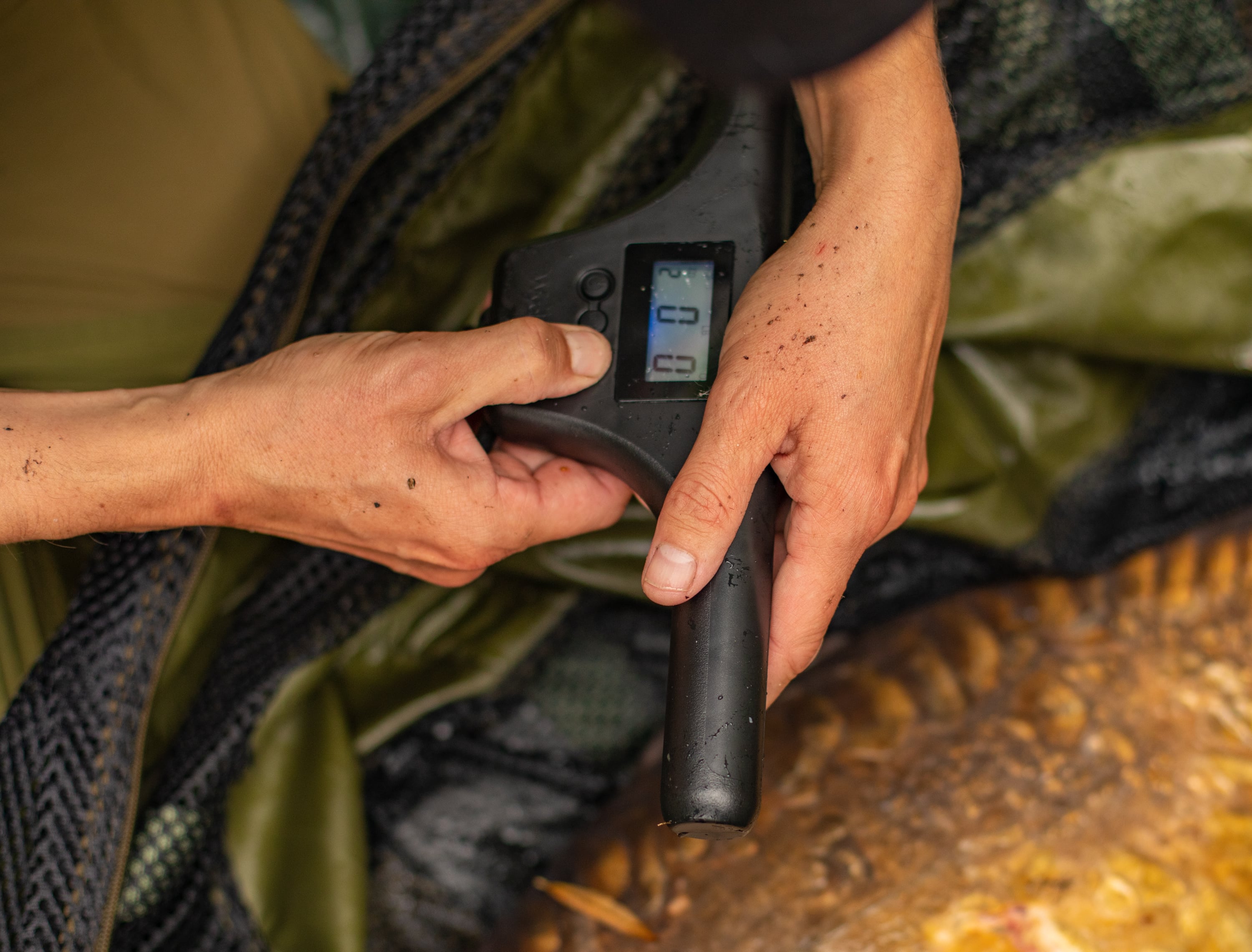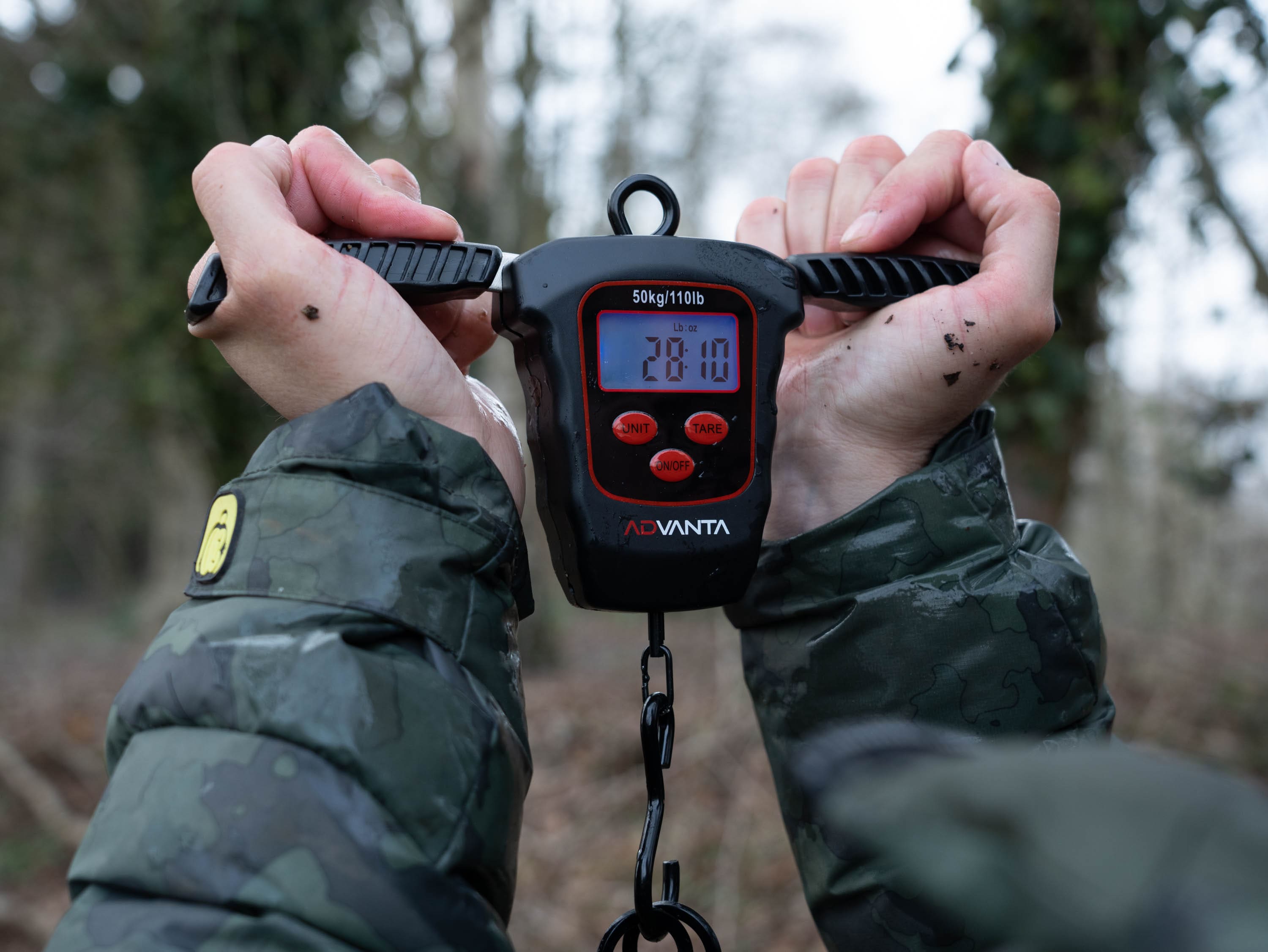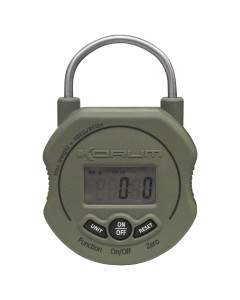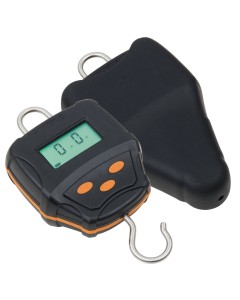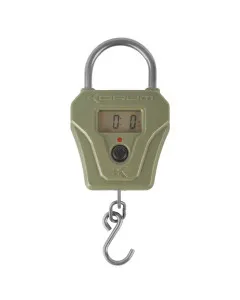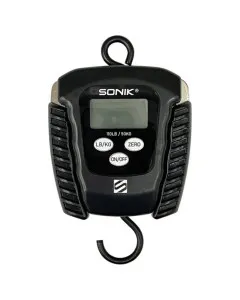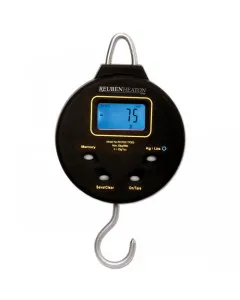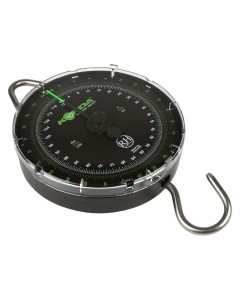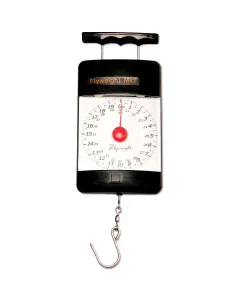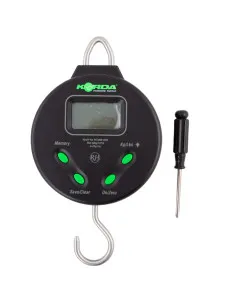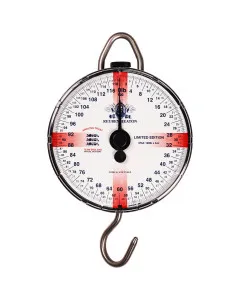Digital vs. Analogue: Which Fishing Scales Should You Choose
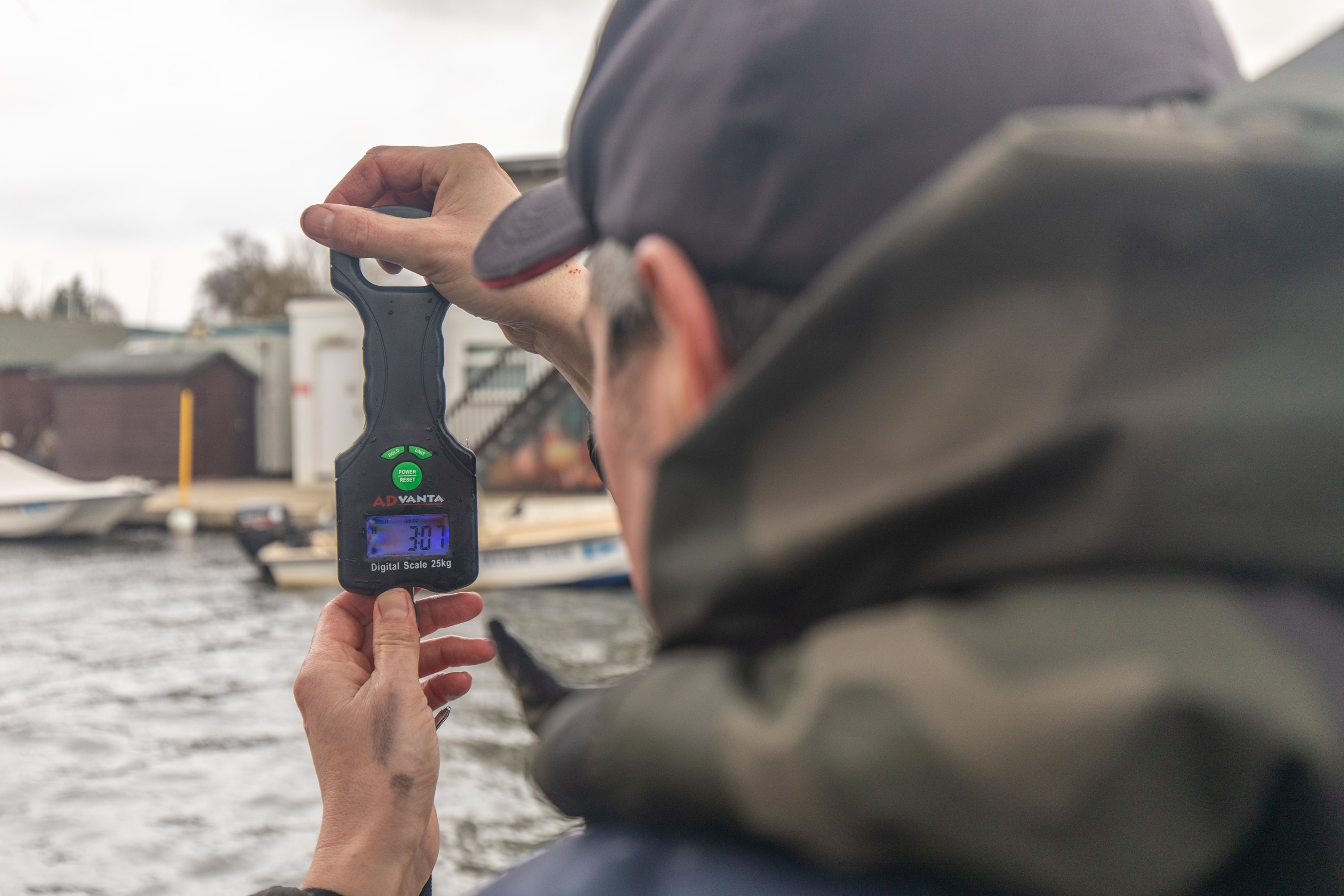
For UK anglers, weighing your fish is a beloved tradition. Like any sport or hobby, measuring our success only helps us grow as anglers.
In this article, we'll be looking closer at fishing weighing scales. A critical piece of fishing equipment that allows us to weigh our catches accurately.
What are the different types of fishing scales?
There are two main types: digital and analogue. Each has its own set of advantages and negatives, and your choice will largely depend on your preferences and requirements.
Analogue Fishing Scales
The trusty, old-school analogue fishing scales have been around for years. Traditional analogue scales for fishing include sturdy and compact construction, with a clear and easy-to-read dial for weight measurement. To ensure accurate readings, they have a durable metal hook or hanging mechanism for attaching the fish.
How do analogue scales work?
Analogue scales work using a simple mechanical system, typically involving a spring that compresses under the weight of your fish. As the spring compresses, a needle moves along a measurement scale to provide you with the weight.
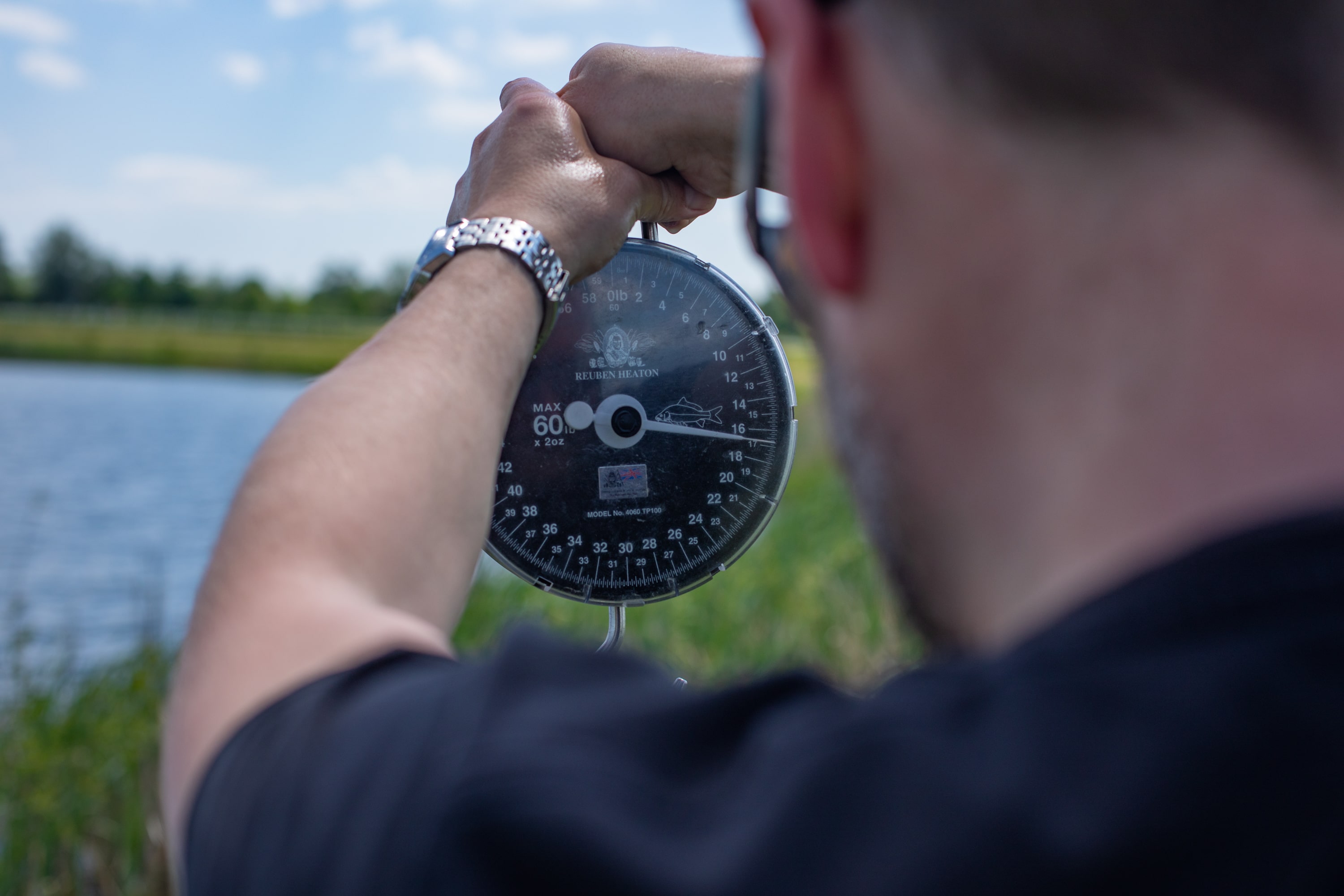

Pros of Analogue Fishing Scales:
Cons of Analogue Fishing Scales:
+ Durability: Built with fewer sensitive components, analogue scales are more resistant to wear and tear.
+ Simple to use: Analogue scales do not require any programming or advanced knowledge. They are very user-friendly for all anglers.
+ No battery dependency: Analogue scales function mechanically and do not require batteries, ensuring they are always ready for use.
+ Cost-effective: More affordable than their digital counterparts, making them accessible to a wider range of anglers.
+ Low maintenance: With fewer moving parts, and no electronic components, analogue fishing scales require less upkeep.
+ No electromagnetic interference: Unlike digital scales, they are not affected by electromagnetic interference. This ensures accurate readings.
+ Classic design: Some anglers prefer the traditional look and feel of analogue scales, appreciating their nostalgic appeal.
+ Resistance to water damage: Analogue/ analog scales are generally more resistant to water damage.
+ Reliable in extreme temperatures: They can operate in extreme cold or heat.
+ Mechanical longevity: Due to their simple design, analogue scales can last longer than digital scales.
- Less accuracy: Analogue scales can be less precise than digital scales, with larger increments between weight measurements.
- Difficult to read: The display on analogue scales can be more challenging to read, especially in low light conditions.
- Limited features: Analog scales typically lack extra features such as memory storage, backlit displays, or unit conversion.
- Potential for calibration issues: Over time, analogue scales may require recalibrating to maintain accuracy.
- Slower weighing process: Analogue scales may take longer to stabilise and provide a reading compared to digital scales.
- Bulkier design: Some analogue scales may be larger and heavier than digital scales, making them less convenient for portability.
- Limited weight capacity: Analog scales can have a lower weight capacity compared to some digital scales. This could be an issue when weighing big specimen fish.
- No data connectivity: Analogue scales cannot connect to other devices or apps for data logging or analysis.
- Inaccurate readings: Over time, the springs or mechanisms inside analogue scales can wear out, leading to incorrect weight measurements.
- Less environment-friendly: As analogue scale parts require oiling or lubrication, they could be considered less eco-friendly.
Digital Fishing Scales
With digital fishing scales, you can measure the weight of your catch using electronic sensors. The scales display weight on a clear screen. They usually have a lit display for fishing in the early morning or at night.
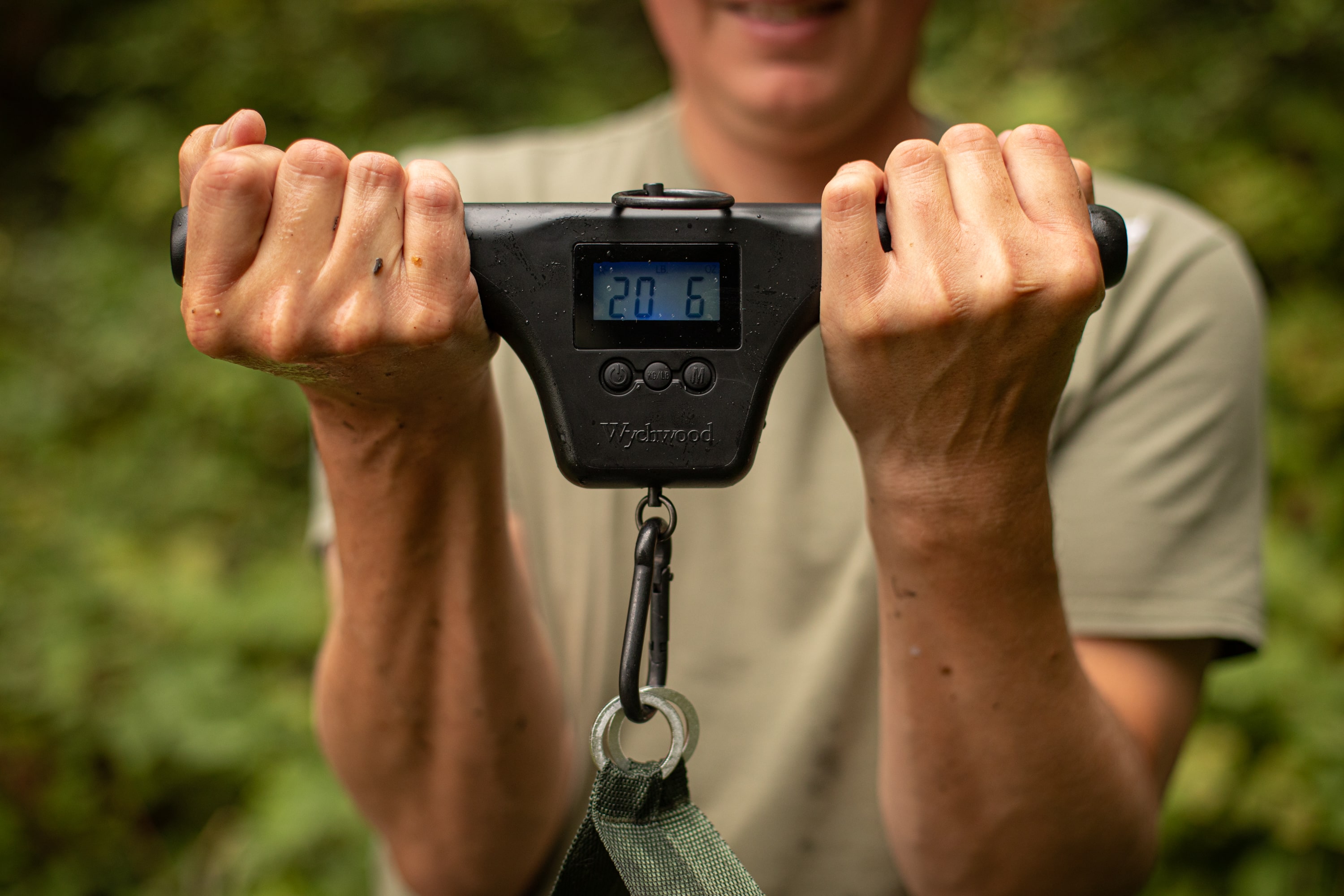

Pros of Digital Fishing Scales:
Cons of Digital Fishing Scales:
+ High accuracy and precision: Digital scales provide more accurate and precise weight measurements compared to analogue scales.
+ Easy-to-read displays: Digital scales usually have clear, backlit LCDs, making them easier to read in various lighting conditions.
+ Additional features: Such as memory storage, unit conversion, and tare function. You can also zero the weight of your weigh sling and get the exact weight of the fish.
+ Faster weighing process: Digital scales provide quick and stable readings compared to analogue scales, saving time and effort.
+ Compact design: Many digital scales have a sleek, lightweight design, making them more portable and convenient for anglers.
+ Higher weight capacity: Digital scales can offer a wider range of weight capacities, making them suitable for weighing larger fish.
+ Data connectivity: Some digital scales can connect to smartphones or other devices. This allows anglers to log and analyse their catches more efficiently.
+ Automatic shut-off: Digital scales often have an automatic shut-off feature to conserve battery life. This ensures they are ready when needed.
+ Consistent calibration: Digital scales maintain their calibration over time, which can lead to more consistent and accurate readings.
+ Customisation: Digital scales often allow users to adjust settings such as units of measurement or tare weight. This provides a more personalised experience.
- Battery dependency: Digital scales require batteries or a power source to function. This can be inconvenient if batteries die or a charger is not available.
- Susceptibility to water damage: Digital scales can be more vulnerable to water damage. They are potentially less durable in wet conditions.
- Generally more expensive: Digital scales are often more costly than analogue scales, which may be a barrier for some anglers.
- Potential for electronic malfunctions: Digital scales can be more prone to technical issues and malfunctions compared to analogue scales.
- Sensitivity to extreme temperatures: Digital scales may not function as well in extreme cold or heat.
- Electromagnetic interference: Digital scales can be affected by electro- magnetic interference.
- Shorter lifespan: Due to their electronic components, expect a shorter lifespan than analogue scales.
- Environmental impact: The production and disposal of batteries and electronic components can contribute to a greater environmental impact.
- Steeper learning curve: Some anglers may find digital scales more complicated to use. You need time to become more familiar with advanced features.
- Maintenance requirements: Digital scales may require regular battery replacements or cleaning of electronic components. Compared to analogue scales.
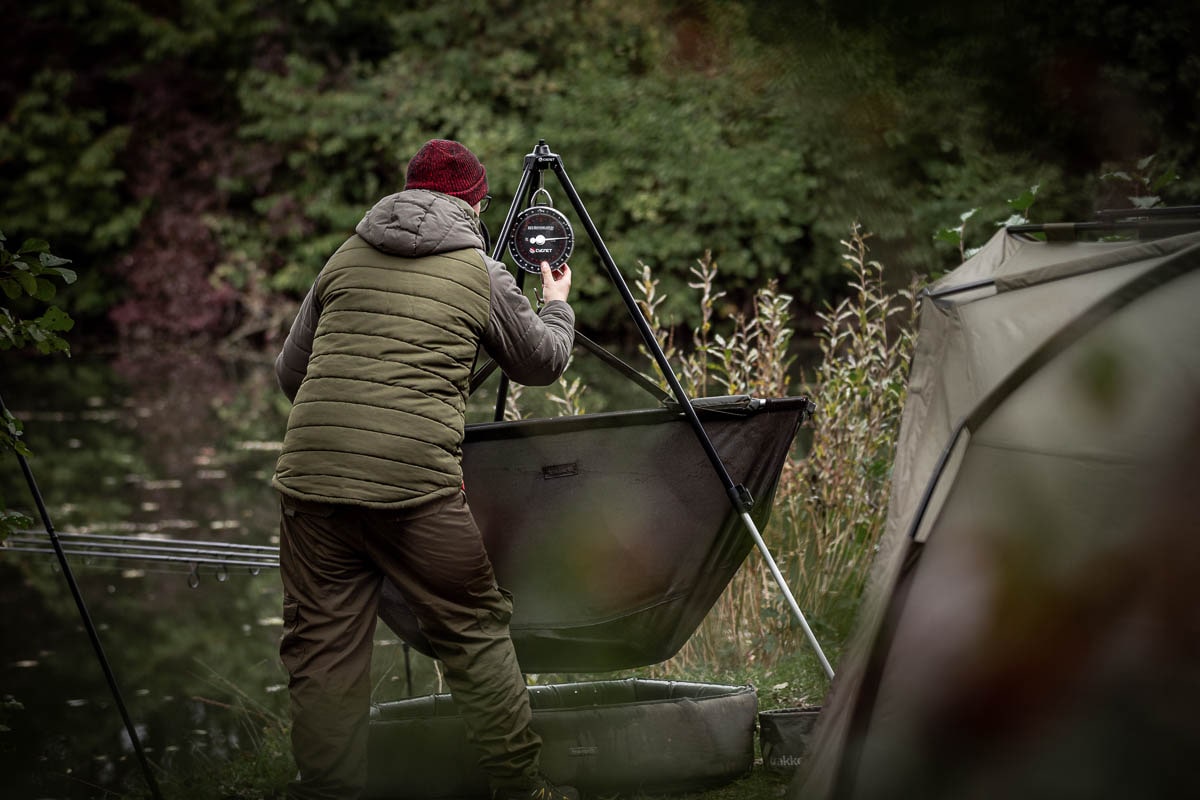

Factors to Consider When Choosing a Fishing Scale
Now that we've explored the ins and outs of both digital and analogue fishing scales, it's time to make a decision. Ultimately, the choice boils down to your personal preferences, budget, and angling style.
Here are a few factors to consider when making your choice:
1. Type of Angler: Are you a casual, weekend angler, or do you participate in competitions where accuracy is crucial? Your angling style will influence the type of scale that best suits your needs.
2. Budget: While digital scales offer more features and accuracy, they also come at a higher price. If you're on a tight budget, an analogue scale might be the best option.
3. Desired features: If you prefer a simple, traditional set of scales, an analogue option is likely the way to go. However, if you value additional features, such as memory storage and backlit displays, a digital scale might be the better choice.
4. Durability: Look for scales made from high-quality materials like stainless steel or aluminium. Consider analogue scales due to their resistance to water damage.
5. Accuracy: Accuracy is a critical factor when choosing a fishing scale. Look for a scale that provides readings within a reasonable margin of error, usually around 1% or less. This is particularly important when measuring a new PB.
6. Readability: The scale should have a clear, easy-to-read display. Digital scales often have backlit LCD screens, while mechanical scales should have a large, well-marked dial.
7. Ease of Use: The scale should be simple to operate, with intuitive controls and a comfortable grip.
8. Weight Capacity: Consider the maximum weight capacity of the scale. For most recreational anglers, a scale with a capacity of 50 pounds should be sufficient.
9. Size and Portability: A compact and lightweight scale is easier to carry and store. Look for scales with foldable or retractable handles for added convenience.
10. Water Resistance: Fishing scales are exposed to water a lot. Choose a set with water-resistant or waterproof features.
How to Use a Fishing Scale
1. Weighing a Fish
In a fish-safe weigh sling or net, attach the sling with the fish in, to the scale using the hook or clamp provided to weigh the fish. Hold the scale steady and wait for the reading to stabilize. Ensure the fish is not touching the ground during the weighing process for an accurate measurement.
2. Taring Function
Some digital scales have a taring feature. This feature allows you to weigh a fish in a sling or net. It also prevents the scale from counting the weight of the sling or net.
First, weigh the sling or net without anything in it. Then, press the tare button to reset the scale to zero before weighing the fish.
3. Storing and Cleaning
Keep your scale clean and dry when not in use. Store it in a protective case or a dry area to prolong its lifespan.
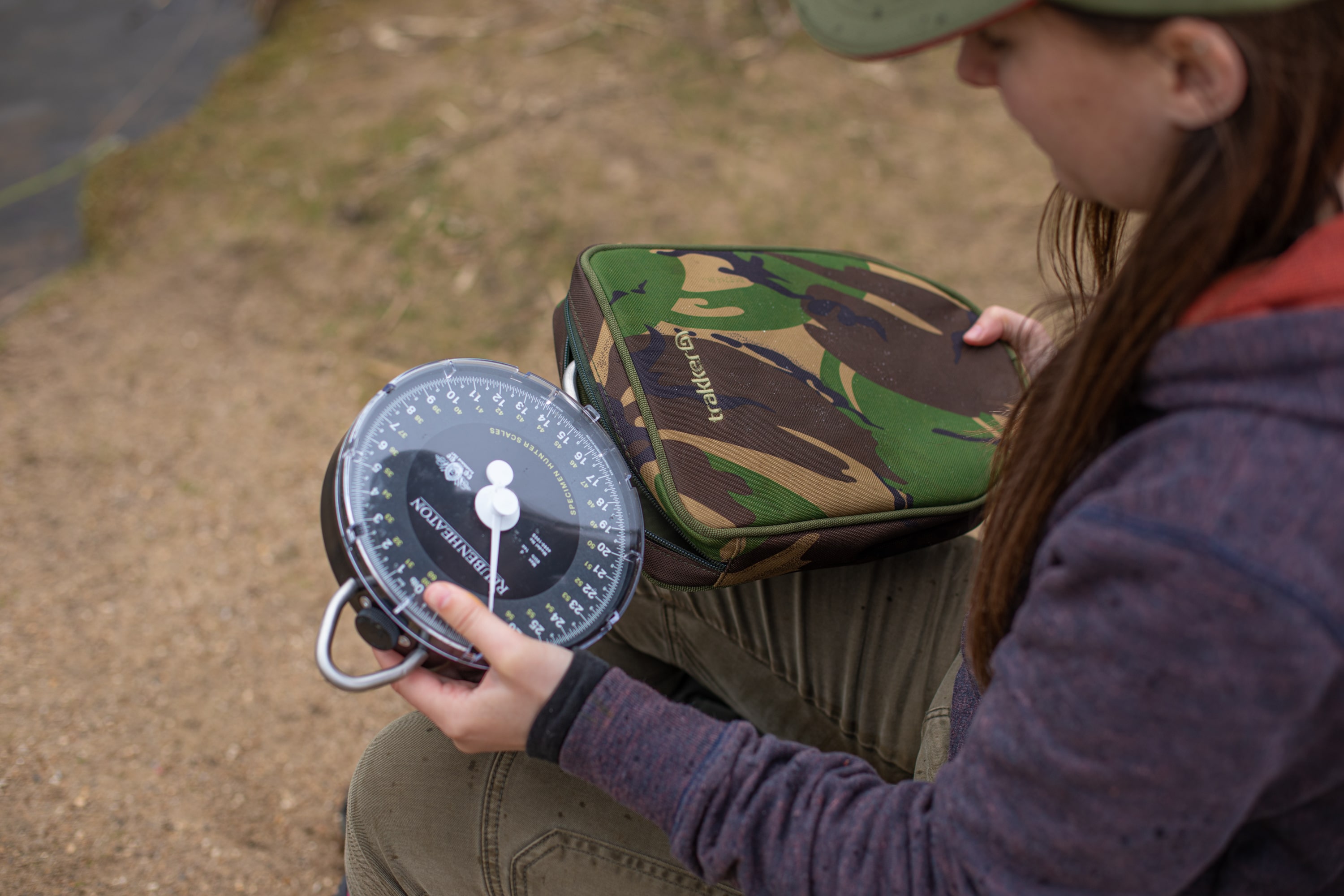

Best Fishing Scales UK
As passionate anglers, we understand the importance of having honest and reliable scales. We recognise that while we assume their accuracy, it's crucial to question just how precise they truly are. When you finally reel in that possible P.B. catch, you want to know its weight is measured accurately.
With a focus on accuracy, we've tirelessly searched the fishing tackle market to select fishing scales from renowned brands. From entry-level needle scales that provide a simple yet reliable option, to elite digital scales that push the boundaries of industry standards. We've got you covered across all budgets and preferences.
Our collection showcases some of the best digital fishing scales from esteemed brands. If you are in the market for the best carp fishing scales you can opt for trusted names like Korum, Wychwood, and Advanta. We also sell a selection of Fox digital scales.
For fans of visual analog scales, opt for the scale specialist; Reuben Heaton for a more traditional feel when at the bankside. These brands have earned a reputation for exceptional accuracy and durability that exceeds expectations in every aspect.
Choose from our curated selection of carp scales and carp fishing weigh bars to fish with confidence. Fish knowing you have a scale you can rely on.
Tips for Fishing Scale Users
1. Calibration for Scales
Regularly calibrate your scale to ensure it remains accurate. Follow the manufacturer's instructions for calibration procedures.
2. Battery Care
For digital scales, be mindful of the battery life. Replace or recharge batteries as needed and remove them during long-term storage.
3. Proper Handling
Handle the scale with care to avoid damaging the internal components. Avoid dropping the scale in water, unless it has waterproof features.
4. Invest in a Fishing Weigh Bar
Weigh bars for fishing scales reduce pressure on scales and provide accurate readings by stabilizing the sling and the fish.
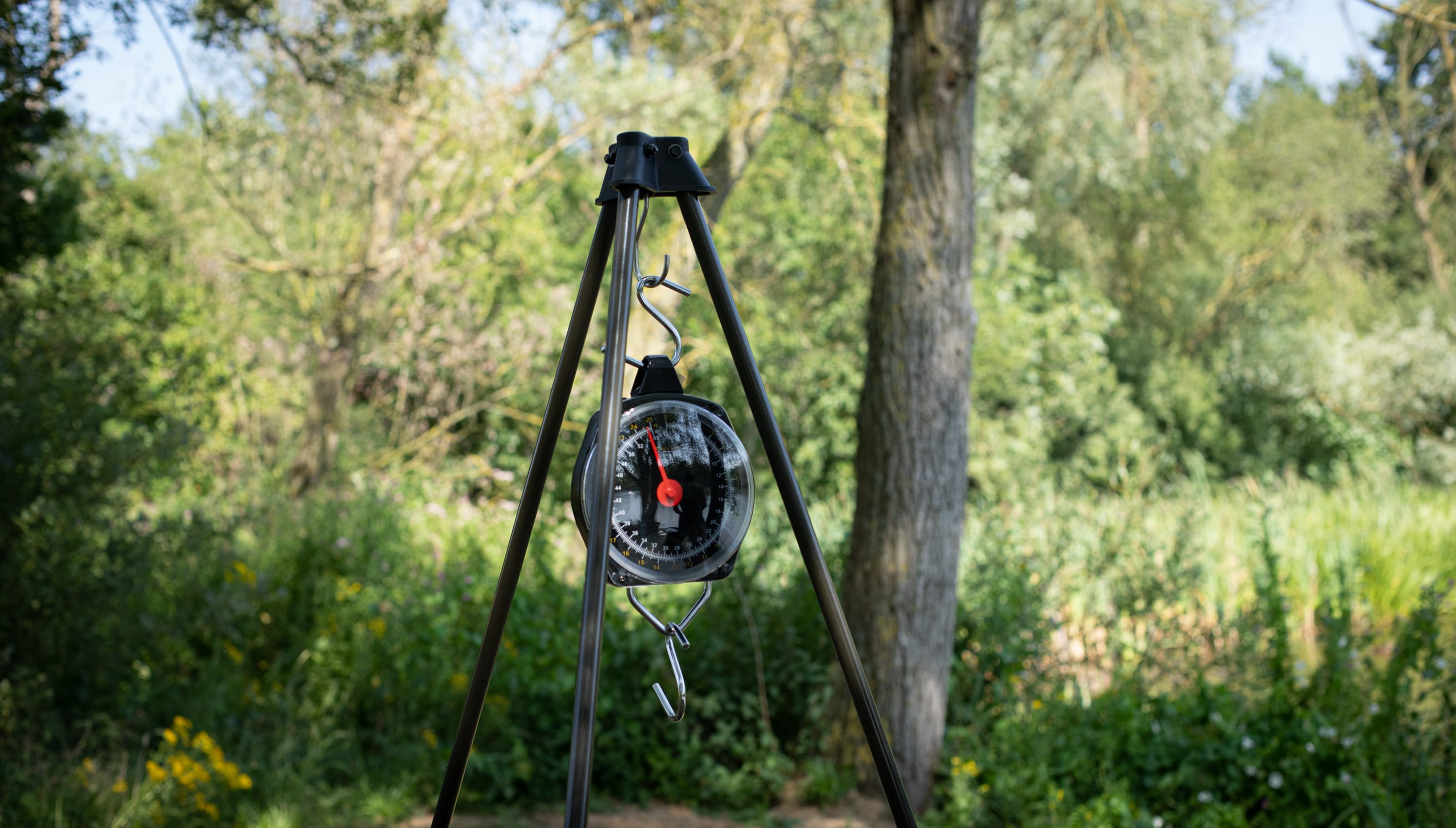

There's no one-size-fits-all answer when it comes to choosing between digital and analogue fishing scales. By carefully weighing the pros and cons of each type, as well as considering your personal angling style. Make an informed decision and choose the best fishing scale for your needs.
Remember, at the end of the day, the most important thing is to enjoy the great outdoors. Keep our fishing tips in mind to get the most out of your fishing scales. Enjoy reeling in those big catches!
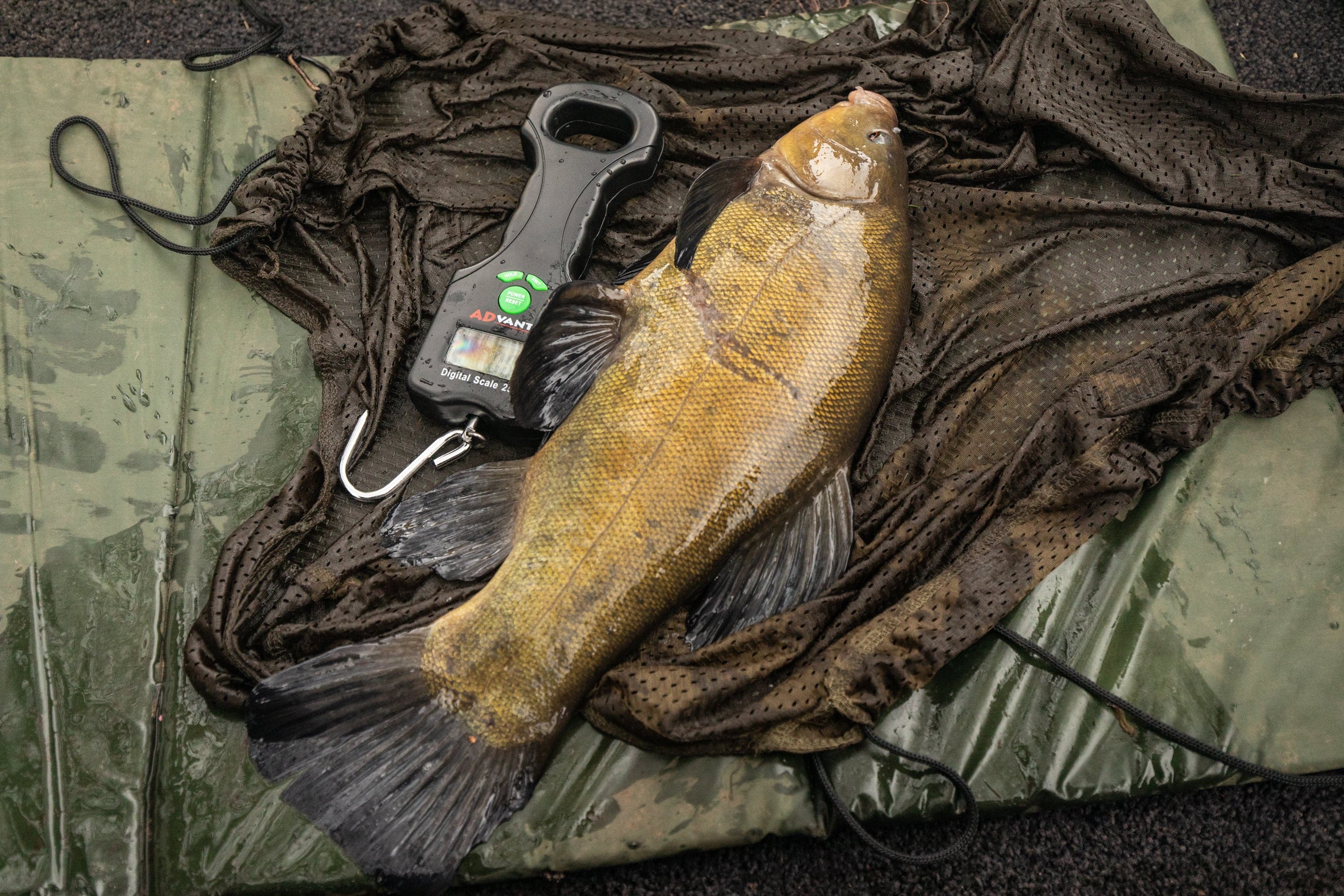

FAQs on Fishing Scales
How do I clean my fishing scales?
Use a soft cloth or sponge to gently clean the scale with water and mild soap. Avoid using harsh chemicals or abrasive materials that could damage the scale's components.
Are digital fishing scales more expensive than analogue ones?
While digital scales tend to be pricier than analogue options, there are affordable models available in both categories.
How do I calibrate my fishing scale?
The calibration process varies between models. Consult your scale's user manual for specific instructions.
Can I use a regular luggage scale for weighing fish?
While luggage scales can work for weighing fish, they may not be as accurate or convenient as dedicated fishing scales. Fishing scales are specifically designed for weighing fish and usually include features like a fish-friendly grip.
How do I maintain my fishing scale?
To keep your fishing scale in tip-top shape, always store it in a dry place. Avoid overloading it, and clean it regularly. For digital scales, be sure to change the batteries as needed.
How do I choose between a digital and analogue fishing scale based on my fishing style?
Consider factors like accuracy, ease of use, and reliability. If you fish in extreme conditions and need a rugged scale, an analogue option might be best. However, if you prioritize accuracy and user-friendly features, a digital scale might be the right choice.
Are fishing scales waterproof?
While many fishing scales are water-resistant, they might not be completely waterproof. Always check the manufacturer's specifications before using your scale in wet conditions.
How do I attach the fish to the scale?
Fishing scales typically come with a hook or clamp for attaching the fish. Make sure the fish is securely fastened before weighing.
Are digital or mechanical scales more accurate?
Digital scales are generally more accurate than mechanical scales. However, both types can provide accurate readings if properly maintained and calibrated.
Do fishing scales require regular maintenance?
Proper care and storage are essential for prolonging the life of your fishing scale. Keep the scale clean and dry, calibrate it periodically, and replace or recharge batteries as needed for digital scales.
